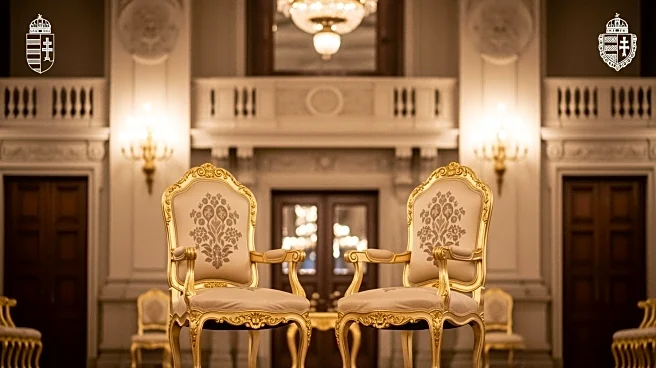What's Happening?
President Trump and President Putin are set to hold a second summit in Hungary after a lengthy phone call that lasted over two hours. The call was described by President Trump as 'productive,' indicating
a positive exchange between the two leaders. This upcoming summit follows their previous interactions and aims to further discussions on various international issues. The meeting is scheduled to occur before President Trump's in-person meeting with President Zelenskyy on Friday, suggesting a busy diplomatic agenda for the U.S. President.
Why It's Important?
The planned summit between President Trump and President Putin is significant as it underscores ongoing diplomatic efforts between the United States and Russia. Such high-level meetings can influence global political dynamics, particularly in areas of mutual interest such as security, trade, and international relations. The outcome of these discussions could impact U.S. foreign policy and its approach to Russian relations, potentially affecting geopolitical stability and cooperation on global issues. Stakeholders in international politics and diplomacy will be closely monitoring the developments from this summit.
What's Next?
Following the summit, potential outcomes could include joint statements or agreements on specific issues discussed during the meeting. Observers will be looking for any shifts in U.S.-Russia relations or new initiatives that may arise from the discussions. Additionally, reactions from other global leaders and international organizations could shape the narrative and influence subsequent diplomatic engagements. The meeting with President Zelenskyy may also provide insights into U.S. strategies in Eastern Europe and its stance on regional conflicts.
Beyond the Headlines
The summit may have deeper implications for U.S.-Russia relations, including potential shifts in military cooperation, cybersecurity measures, and economic sanctions. Ethical considerations regarding human rights and international law could also be part of the dialogue, influencing long-term policy decisions. Cultural exchanges and mutual understanding between the two nations might be fostered, contributing to a more stable international environment.








